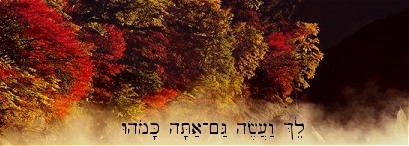|
February 2008 Updates
The Loneliness of the Christian

2.29.08 Lately I've become appalled at the sorry state of "Evangelicalism" in the United States. On the one hand, many of today's Evangelical leaders seem to regularly imbibe the propaganda of our age and thereby promote the Culture of Fear that is used to socially engineer the secular world... On the other hand, these same leaders seem intent on pushing the church further and further into postmodern despair and absurdism, i.e., the escapist mentality that likewise is part of the spirit of our age...
How else can you account for the fact that "top-shelf" Evangelicals like Chuck Colson, Lee Strobel, Focus on the Family's H.B London, John Townsend, etc., all support the likes of "don't-worry-be-happy" Robert A. Schuller? After all, in addition to Larry King, former President H.W. Bush, Rupert Murdoch, and other secular notables, these leaders were all participants in Schuller's recent "Rethink" Conference. This is that same Robert Schuller, after all, who recently helped make the Living Luminaries, a movie just released on DVD, replete with New Age leaders like Marianne Williamson, Michael Beckwith (of The Secret notoriety), and even the "Venerable Tibetan Lama" Chodak Gyatso Nupka. Why do such supposedly Bible-Believing leaders embrace the world and attend to its prevailing spirit and yet regularly ignore or even disdain Israel and the Jewish people? Why do they laud "Reformers" like Luther and Calvin (who espoused Replacement Theology and other heresies) and yet overlook the LORD God of Israel's irrevocable Covenantal Promises given to His people? Have they not read: "Behold, He that keepeth Israel shall neither slumber nor sleep" (Psalm 121:4)? Do they need to reread Romans 9-11 or review all the covenantal promises given to Avraham Avinu and his descendants? Are they awake to the fact that King Yeshua will soon be returning to Jerusalem to establish His Kingdom?
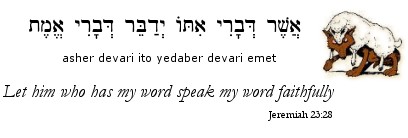 |
This isn't the place for me to go into the perils of our age, especially as it relates to mendacious expressions of postmodern Christianity. However, some of you today might be experiencing a poignant sense of alienation within your hearts, even while fellowshipping among those who claim to be followers of the Messiah Yeshua. Because of this, I wanted to quote A.W. Tozer regarding the Loneliness of the Christian:
The loneliness of the Christian results from his walk with God in an ungodly world, a walk that must often take him away from the fellowship of good Christians as well as from that of the unregenerate world.
His God-given instincts cry out for companionship with others of his kind, others who can understand his longings, his aspirations, his absorptions in the love of Christ; and because with his circle of friends there are few who share his inner experiences, he's forced to walk alone.
The unsatisfied longings of the prophets for human understanding caused them to cry out in their complaint, and even our Lord himself suffered in the same way.
The man (or woman) who has passed on into the divine Presence in actual inner experience will not find many who understand him. He finds few who care to talk about that which is the supreme object of his interest, so he is often silent and preoccupied in the midst of noisy religious shoptalk.
For this he earns the reputation of being dull and over-serious, so he is avoided, and the gulf between him and society widens. He searches for the friends upon whose garments he can detect the smell of myrrh and aloes and cassia out of the ivory palaces, and finding few or none, he, like Mary of old, keeps these things in his heart.
It is this very loneliness that throws him back upon God. His inability to find human companionship drives him to seek in God what he can find nowhere else.
Shabbat Shalom, chaverim. Chazak v'ematz.
Web Server Issues
2.27.08 Because of technical issues beyond my control, the Hebrew4Christians site has been acting sluggish lately, and I am not sure how to resolve the problem with my host ISP. One solution would be to transfer service to another host altogether, though that would result in a lot of work on my side that may or may not ultimately resolve the issue. Your prayers are appreciated, chaverim.

I also created another version of Hebrew consonant Flashcards for the site today. I hope to add more on Vowels and basic vocubulary as well.
Jewish New Testament Audio CDs!
2.26.08 I added a new product to the Hebrew4Christians online store today: The Jewish New Testament (translated by David H. Stern). This professional production of 20 audio CDs was recorded in Jerusalem by Jonathan Settel, one of the finest singers in the Messianic Jewish world. At only $59.95, your cost is only $3.00 per CD, so it's quite a bargain. Best of all you will hear Jonathan Settel's inspiring voice as he reads the New Testament writings from a distinctively Jewish perspective.
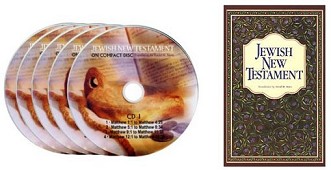
For more information, click here.
Parashat Vayekhel
2.25.08 I updated the weekly Torah portion for this coming Shabbat (Vayekhel) and also updated the PDF file.
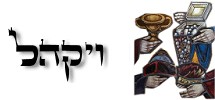
I will add some additional commentary about this parashah later this week, IY"H.
New Hebrew Meditation: Zivchei-Tzedek
2.22.08 Today I wrote a new Hebrew meditation (Right Sacrifices) based the familiar pasuk from Psalm 4: "Offer the sacrifices of righteousness and trust in the LORD." I hope you will find it encouraging and helpful, chaverim.
Updated Hebrew Flashcards
2.21.08 Did you know that Hebrew4Christians offers FREE Hebrew Alphabet and Hebrew Vowel flashcard sets? To use them, simply download the PDF files and print them at high resolution. Correlate the pages, back to back, and then cut out the cards on the dotted lines. To make them especially nice, go to Kinkos or another source and laminate them! Presto!

Ki Tisa and the Revelation of the Name
2.20.08 Today someone on the H4C forum wondered about the meaning of the following passage in the Torah:

Why did Moses say that the Sacred Name YHVH (i.e., "the LORD") had not been "made known" to Patriarchs, even though it appears earlier in the writings of the Torah (beginning as early as Genesis 2:4)? This verse states that the LORD "appeared" as El Shaddai (Gen. 17:1) to the fathers. According to the sages, Shaddai comes from she- (who/which) and dai (sufficient), meaning the one who is all-sufficient (Bavli, Hagigah 12a). Other sources note that shad means "breast," suggesting that God would sustain those who trust in Him. But didn't Abraham know the Name of the LORD (see Gen. 13:4,18, Gen. 14:22, Gen. 15:2)? And didn't he foresee the great Exodus from Egypt (Gen. 15:12-15)? If so, what are we to make of the puzzling statement made in Exodus 6:3?
Perhaps a bit of background to the LORD's "declaration of His Name" to Moses will help in understanding some of this.
After the Jews had committed the grievous sin with the Golden Calf, Moses despaired of the Jews ever being able to find favor in God's eyes again. Read the poignant Scriptures about how Moses later communed panim el panim (face to face) with the Father in the Tent of Meeting located outside the camp (Ex 33:7-34:7). God graciously reassured Moses by telling him that He would reveal His Name to him. After Moses re-ascended Mt. Sinai, God said:
"...The LORD, The LORD God, merciful and gracious, longsuffering, and abundant in goodness and truth, keeping mercy for thousands, forgiving iniquity and transgression and sin, and that will by no means clear the guilty; visiting the iniquity of the fathers upon the children, and upon the children's children, unto the third and to the fourth generation." (Ex. 34:6-7, KJV)
That was Moses' experience after chet ha'egel - (the sin of the Golden Calf), when he smashed the Torah tablets and despaired before the LORD. Only after he understood God as rachum v'chanun was the breach restored and the covenant was renewed...
In other words, Moses had to re-experience the LORD according to His mercy and grace before he could find hope to be in relationship with Him. Moses had to come to know the Name YHVH as the Name of Mercy and the Name of Grace...

When you work through the semantics (reading from the "back of the book," so to speak), we can see that the issue comes down to the central concern of being in a restored love relationship with the LORD. That was the deeper meaning of Sinai, just as it is the meaning of the Cross of Jesus Himself....
Whenever I consider the Name of the LORD, I try to keep the following points in mind:
- There are hundreds of unique Names and Titles of God given in the Scriptures.
- The Name YHVH is likely is a play on words from the Hebrew phrase Ehyeh Asher Eheyeh and the verb hayah (see Ex. 3:14).
- Moses' encounter with the LORD the second time at Sinai revealed Him as merciful and gracious to all who come before Him in brokenness.
- Yeshua commanded us to call upon God as "Father" and made no other comments about the Name.
- The Hebraic idea of the Name is not some sort of conjuration of Presence but a revelation of personhood, deeds, and character. That's the deeper implication of "knowing the Name" of the LORD. For those who trust in Yeshua, God's Name includes the great saving work performed at the Holy of Holies upon the Cross at Moriah, as well as the Name Comforter...
- The idea that we have "lost" the meaning or pronunciation of the Name is essentially anti-Semitic, since it implies that the Rabbis suppressed it from the rest of the world (or intentionally corrupted its spelling through scribal additions).
Some of the Jewish mystics claim that the Name of God is best understood as all 304,805 letters of the Torah sounded SIMULTANEOUSLY.... That is, string together all 304,805 letters of the Torah - from the first letter of Bereshit (Bet) through the last letter of Devarim (Lamed) - and "read" this as a single "word". This is sometimes called the "304,805 letter Name of God." Since the LORD is otherwise described as the WORD of God, this inference seems valid (though obviously the intent here is to remind us that God always greater than our greatest thoughts about Him, even if we attempt to express this by using all of the sacred letters of the Torah).
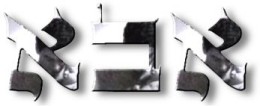
We learn from the teachings of Yeshua that the Name of God is best understood as "Father." In fact, He used the common Aramaic word for "daddy" (abba) to refer to His relationship with God -- and He wanted his followers to do likewise.
God as our Father relates to us intimately as a good earthly father relates to his children. We do not need formulas or rituals to help us feel connected to Him, since we understand that His love for us is demonstrated in the gracious sacrifice of His Son for our restoration to Himself. We can know the "Word that is behind the word" as experienced in the resurrected life and love of Yeshua our Savior. It is by means of the Cross of Yeshua that we come to know the deepest meaning of the Sacred Name of God.
 |
An Appeal to Study Hebrew
2.19.08 Today I added a short article written by John Piper that attempts to cajole pastors and teachers to take their duty to study the original languages of the Scriptures seriously. I would qualify Dr. Piper's comments, however, by insisting that the study of Hebrew must take priority over the study of the Greek text of the New Testament (though of course both are important).

After all, the Greek text of the New Testament derives its authority and veracity from the Jewish Scriptures, and not the other way around. In other words, while it's possible that the Hebrew Scriptures are true and the Greek Scriptures are not, it's impossible for the Greek Scriptures to be true if the Hebrew Scriptures are not. Too many Christian theologians go at this backwards, reading the Greek New Testament as the interpretative filter for the study of the Hebrew text. The hermeneutical primacy of the Hebrew text should be evident to all who study the Scriptures seriously.
Indeed, I would go well beyond Dr. Piper's modest proposal and implore pastors and teachers to study the Hebraic mindset of the Scriptures and to become fluent with Jewish ways of reading and understanding the Scriptures. It is nothing short of folly for the Christian Church to disregard the wealth of insights afforded by the Jewish sages over the millennia. Moreover, the Jewish mo'edim (holidays) are all clearly prophetic and offer tremendous insights regarding redemption, social concerns, and eschatology.
It is imperative to always remember that God chose to reveal Himself to the world as a Jewish man who was born, who lived, and who died within a Jewish culture and context. The great redemptive work of God is virtually inscrutable apart from this awareness, and "forgetting" this truth invariably leads to all sorts of exegetical errors and fallacious theological inferences (e.g., misinterpreting the dialogs between Jesus and the Pharisees).
Even if you have mastered all the verb paradigms and noun endings in your Greek New Testament, even if you are conversant with the various syntactical rules of Koine Greek grammar, etc., etc., nonetheless -- without a profound comprehension of the Hebraic mindset that informs its pages you are likely to misread much of its intent, especially considering the implicit anti-Semitism and "Replacement Theology" that has pervaded Christian thinking over the centuries...
Parashat Ki Tisa - פרשת כי תשא
2.17.08 I have been very busy getting the new book ready for printing, so I have not had a lot of time to add new material to the site the last two weeks. However, I updated the weekly Torah portion for this coming Shabbat (Ki Tisa), and also updated the PDF file.

I hope to add some additional commentary on this portion later this week, IY"H.
Dealing with Pain
2.13.08 I have been busy trying to get a new book finished while struggling with pain, sleep disorders, etc. Your prayers are appreciated, chaverim.
I also designed some new shirts recently that you might like:
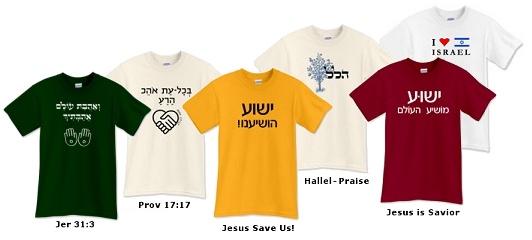
Parashat Tetzaveh - פרשת תצוה
2.11.08 I updated the weekly Torah portion for this coming Shabbat (Tetzaveh) and created a PDF download.

The sages liken the symbolism of the Mishkan (Tabernacle) with that of Creation itself. Just as the LORD created mankind as the most important aspect of His creation, so He gave the instructions for lighting the menorah and burning ketoret (incense) after the Mishkan was created. Mankind was ultimately created to worship the LORD God of Israel.
The Mashiach Yeshua is the Great High Priest (and King) from the royal tribe of Judah. His priesthood is after the order of Malki-Tzedek, based on the unchanging promise of God Himself (Psalm 110:4) and excels the priesthood of Levi as much as the Substance excels its shadow (Heb. 10:1, 13:10). Nonetheless, the foreshadowing of the Mishkan was not given to Israel in vain, and (like the menorah and ketoret) our lives should shine the light of truth to others (Matt. 5:16) and evoke the savor of heaven wherever we go (2 Cor. 2:14-16).
Notice that the first verse of the portion includes the phrase veyikhu eleykha shemen zayit... "You shall take for yourselves olive oil..." The implication of the commandment is not so much to give to the LORD as much as it is to take from one's life that which belongs to the LORD already. This act of returning to God is inviolable: establishing the correct order of life yields blessing now and in the world to come.
The choshen or breastplate of the High Priest is also described in this portion of Torah. This sacred vestment was worn over the ephod (linen apron) and contained two special gemstones called the urim v'tummin ("lights and perfections"; Ex. 28:30; Lev. 8:8; Num. 27:21; Deut. 33:8). These stones were used to discern the will of God in some cases (1 Sam. 14:41; 28:6; Ezr. 2:63; Neh. 7:65). Some have claimed that the Shekhinah would cause the urim and tummim to light up and shine upon the avnei choshen (the 12 gemstones in the choshen that represented the 12 tribes of Israel). Since each stone was inscribed with a name of a tribe of Israel, the letters illuminated on the choshen would reveal an answer to a question posed by the High Priest.

Avnei Chosen
The choshen was arranged with four rows of three stones. Each stone was inscribed with six letters representing a name of a tribe of Israel (for a total of 72 letters). According to some of the sages, the order was as follows:
- Row 1: Reuben (ruby), Simeon (topaz), and Levi (garfinkel)
- Row 2: Judah (carbuncle), Issachar (sapphire), and Zebulun (pearl)
- Row 3: Dan (jacinth), Naphtali (agate) and Gad (crystal);
- Row 4: Asher (emerald), Joseph (onyx), and Benjamin (yashneh- an unknown stone).
According to the Gemara (Sotah), the "shamir" was a miraculous worm, as small as a grain of barley, that was used to engrave the names of the tribes on the stones.
Believers in the Mashiach Yeshua are likewise appointed to be a kingdom of priests (1 Pet 2:9) and have direct access to the Ruach HaKodesh (Holy Spirit) to discern the will of God. We do this through faith, asking the LORD for wisdom, and trusting in His Light and Perfection to guide us into all truth (John 16:3).
Re-Reading the First Temple Seal
2.08.08 Last month I told you about the discovery of a stone seal that dated back to the time of the First Temple. This seal, found during an archaeological excavation just outside Jerusalem by archaeologist Dr. Eilat Mazar, purportedly had the name Temach (Neh. 7:55) inscribed in Ketav Ivri (First Temple Script). However, Ryan Byrne of the Biblical Archeology Society corrected the initial reading by reminding us of the obvious fact that a seal would be used to impress clay and other objects, and therefore the inscription should be read "mirrored" from what we see when we look at it directly. According to Byrne, the text most likely isn't temach, but rather shelomit (perhaps a common Hebrew woman's name meaning "peace"). Here's my reworking of the image with the Hebrew letters re-identified:
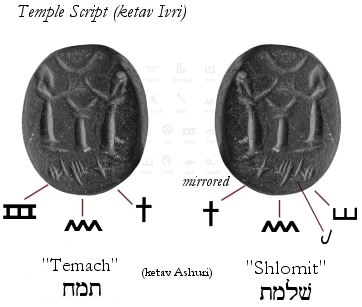
While a reading error like this is somewhat embarrassing to those who initially made the discovery (and to those of us who trumpeted the find), it nonetheless provides archaeological corroboration of a Jewish presence in the land of Israel thousands of years ago....
Coping with Pain
2.07.08 I am scheduled for an MRI to be done on my left shoulder tomorrow evening... Please offer up a prayer that this will help discover what's going on with some of my chronic pain. Thank you, chaverim.
Parashat Terumah - פרשת תרומה
2.05.08 I updated the weekly Torah portion for this coming Shabbat (Terumah) and created a PDF download. This portion calls for a contribution from the people of Israel for the construction of the Mishkan (tabernacle), a structure that would symbolize the LORD's presence (Shekhinah) among them during their sojourn to the Promised Land. Detailed instructions for constructing the Mishkan according to the pattern (tavnit ha-mishkan) are provided in this portion of Torah (the Mishkan later became the model for the Bet Hamikdash (Temple) in Jerusalem, and even for synagogue architecture in later days).

In the second verse of the parashah it is written, ve-yikhu li terumah - "Take for Me an offering." The sages note that the words "for Me" teach that when a person gives charity, it should be done quietly, "without the left hand knowing what the right is doing" (cp. Matt. 6:3). Take for Me (not "give to me") also suggests that those who give chesed and charity partake of God for themselves, since the LORD "stands at the right hand of the needy to save" (Psalm 109:31). Just as the physical heart freely gives to the other organs of the body, so a giving heart is central to God's saving work in the lives of others.

Late Night Lucubrations
2.01.08 I am still working on the new book as well as updating some things over here. I wish you all a wonderful Shabbat and the peace of the LORD Yeshua, that passes all understanding....

|












